Ionuț Bindea, CEO of ROCA Industry, the first industrial holding in the industry of construction materials in Romania, talks about the company’s strategy and business model and about the advantages of its listing on the Bucharest Stock Exchange.
“ROCA Industry is an industrial holding that buys companies and develops them. We want to grow and create regional champions. It's not just a slogan on the wall, we really care about this. Basically, each of the companies in ROCA Industry must have the ability to grow and become a regional player, both through organic growth and through M&A,” says Ionuț Bindea, CEO of ROCA Industry. “We're not just looking at the bottom line, we have a long-term development strategy, because we're going to be in these companies for the long term.”
ROCA Industry was founded in September 2021 by ROCA Investment, one of the biggest private equity firms in Romania – part of Impetum group, and was listed on the Bucharest Stock Exchange’s AeRO market in January 2022 after a private placement in which it raised around EUR 10 million from local investors. Since its establishment, the industrial holding has expanded its portfolio from one company – fiberglass mesh producer BICO Industries – to five companies, by investing in paints producer Evolor, door producer Eco Euro Doors, edge panels and fence mesh producer Dial, and cable producer Electroplast.
It has also managed to develop abroad by acquiring factories in the Republic of Moldova and Lithuania through BICO Industries, which is now the third-biggest producer of fiberglass mesh in the EU.
“We already have a regional champion. We have already shown that we know how to get there. And now we are following the same strategy with the other companies in our portfolio,” says Ionuț Bindea.
An important step in ROCA Industry’s development is a new capital increase through which the holding is looking to raise up to EUR 30 million from investors on the Bucharest Stock Exchange, an amount to be used mainly for new acquisitions. The capital increase will also be followed by the company’s transfer to the BSE’s main market.
“Our estimate is that after this share capital increase we will exceed 50-million-euro capitalization, at which level we will start to be on the radar of bigger investors,” explains ROCA Industry’s CEO.
Read more in the Q&A interview below:
How would you define ROCA Industry and what is the market niche you occupy in the Romanian investment ecosystem?
Ionuț Bindea: ROCA Industry is the most relevant industrial production holding in the field of construction materials with Romanian capital.
It is very important to differentiate between ROCA Industry and ROCA Investments, which is the majority shareholder of ROCA Industry, because ROCA Investments is a private equity.
ROCA Industry is an industrial holding with factories that produce construction materials. An industrial holding that, unlike others that exist in Romania, does not have its own economic activity as a holding, but only the companies in its portfolio have economic activity.
The holding company is a traditional concept in developed economies, but in our country it has been little used so far. What does such a holding type structure bring to the economic environment in Romania?
Ionuț Bindea: In our case, the holding company primarily brings know-how to the portfolio companies, because at the level of the holding structure we have the ability to attract specialists for each function that is needed at a higher level than some companies with a turnover of 10, 15, 20 million euros. When we talk about a holding that exceeds 100 million euros in turnover, we have a higher ability to attract managers and that's why we have a very well-trained team that covers the functional needs of the company - commercial director, financial director, operations manager, marketing team. Through these managers, we bring know-how to the portfolio companies.
Another component that we bring or that a holding type structure brings is synergies. Considering that all ROCA Industry companies are in the field of construction materials, a large part of their customers are common. For example, all of the companies sell to the do-it-yourself segment and to the major building material retailers. Even in the area of traditional trade and smaller distributors, their customers overlap. As a result, we can talk about a series of synergies, such as greater bargaining power. Likewise, in the purchasing area.
Operational synergies are also very important, and here I mean the transfer of know-how and best practices. For example, at BICO Industries, we have implemented the first industrial robot in our group. We learn from what we did there and we want to apply in the other companies as well. In Electroplast, we have implemented the first industry 4.0 project, which entails monitoring equipment directly linked to the production machines that automatically transmits information to the ERP, so that afterwards they are all analyzed by the operational department. We have done it as a pilot project in one company, we take everything that was good, correct everything that didn't work well enough and move on to implement it in the other companies.
This area of synergies, transfer of know-how and good practices is very important, especially because we, Romanians, have a slightly more individualistic culture and it is not always very easy for us to collaborate and work as a team.
Apart from that, another specific advantage of the holding company is the ability to attract much higher financing than the individual capacity of each company. For example, we are a listed company, and when we listed we raised capital that helped us fund the development of ROCA Industry and the portfolio companies. Now, we have a new capital increase underway to finance the holding company further. Also, when we talk to banks at the holding company level, we have a bigger reach and it's easier for us to attract financing than it would be for individual companies.
What were the first sources of funding for ROCA Industry and how easy or difficult was it to attract investors for the project?
Ionuț Bindea: ROCA Industry was practically created 4 months before its listing on the AeRO market of the Bucharest Stock Exchange. The first financing came from the private placement held in December 2021, in which 120 private investors participated.
We started with an initial capital of around 37 million euros, including the in-kind contribution of ROCA Investment, representing the majority stake in BICO Industries, and around 10 million euros in cash from the private placement. So, we had BICO Industries and the private placement money that we used overwhelmingly for the acquisition of other companies.
Have you attracted any other money from the listing? What funding plans do you have going forward?
Ionuț Bindea: At the holding level, we have not attracted any other financing and we have no debt, except for intragroup loans from the main shareholder. However, we attracted financing in the portfolio companies for leveraged buyout (LBO) transactions. This is financing related to the acquisition transactions carried out by ROCA Industry through the portfolio companies.
We are about to start a share capital increase, through which we aim to at least between 15 to 30 million euros. The operation is ongoing, being already approved by the shareholders, and received the Financial Supervisory Authority (ASF) authorization of the prospectus. Our plan is to complete the first stage of this capital increase (for existing shareholders) in the first 10 days of the next year, and the second stage (for existing but also new shareholders – Private Placement), until the end of January. Immediately after the completion of the capital increase, the shares will be transferred to the main market of the Bucharest Stock Exchange.
Returning to the ROCA Industry investments, why did you choose the industrial sector and especially this sub-sector of construction materials as a target for this first holding?
Ionuț Bindea: It was a natural decision relative to the investments we already had in the pipeline. ROCA Investment already had a company from this field in its portfolio and the team was in very advanced negotiations with two more companies. For the first one, we closed the deal about a month after we founded ROCA Industry and we were already conducting negotiations for the next company.
But why the area of building materials? Because we see very big opportunities in this area, in the medium and long term. At ROCA Industry, we don't have a short-term mentality and we don't just focus on getting quick profits, we have a long-term strategy. And, in the long term, we see very big opportunities, even if this market for construction materials is highly cyclical.
Apart from this element of potential, the building materials sector is one that other private equity funds avoid entering. It is not a very attractive field for investors because it does not have the hype of the IT area or even of the medical field. But we also like to go against the trend and have the courage to be road openers.
How do you choose the companies in which ROCA Industry invests? What are the main criteria that guide you in the selection process?
Ionuț Bindea: First of all, we have some minimum size criteria. The companies we directly invest in must have a turnover of at least 10 million euros, and a double-digit EBITDA margin, so at least one million or so euros EBITDA. This is a minimum size to start from, so that they support the transformational process we do afterwards.
Then, we're really looking at potential. Companies must have the potential to scale, have untapped market large enough for us to grow, and find room in them to streamline operations, bring new CAPEX and increase production capabilities.
What role do founders and existing management play after you invest in a particular company?
Ionuț Bindea: We like it when they can still play an important role. To a very large extent, Romanian entrepreneurial companies are based on a technical competence of the founding entrepreneur. After that, the other functions are developed on this technical competence. When we take over the company, it is important that this element of know-how stays with us for at least another two to three years.
This is not always the case. Many of the companies we enter are in the process of succession. They are owned by entrepreneurs who are over 60-65 years old, who want to retire, travel, and enjoy the fruits of a lifetime's work, but who don't have a succession process and don't have anyone to pass their companies to. And so, we also have situations where the founding entrepreneurs did not stay for more than a few months for the handover process.
What are the goals and objectives you are pursuing in the portfolio companies?
Ionuț Bindea: We want to grow and create regional champions. It's not just a slogan on the wall, we really care about this. Basically, each of the companies in ROCA Industry must have the ability to grow and become a regional player, both through organic growth and through M&A. It must be in a niche, in a sector that allows for regionalization, a sector where there is growth, which is not yet 100% occupied by other players, and definitely not a market in decline – a product that is to be replaced in the short to medium term by newer products. To summarize, our companies must be able to become regional champions. That means size and accelerated sales growth, and they have to be profitable and efficient companies, whose profitability we can further improve.
Among the companies in the portfolio, which one is more advanced in this project to become a regional champion? Do you have a proven success model that you use and try to apply to the others?
Ionuț Bindea: Yes, we have a model that we are trying to replicate. It is that of BICO Industry, the oldest company in our portfolio. It is a company that ROCA Investments had already entered in 2020 and that we incorporated into ROCA Industry when we founded the holding company. BICO Industries today has five factories in three countries: we have two factories in Romania, two factories in the Republic of Moldova and one factory in Lithuania. In the segment of fiberglass mesh in which BICO operates, we are the third largest company in the European Union and the largest company in Central and Eastern Europe. So, we already have a regional champion. We have already shown that we know how to get there.
It's not necessarily an overnight process, because it all starts with turning the original company into a company that can play at that level and that can also do M&A. First of all, it is about putting the right structures in the companies, having all the departments, and making sure that they are not only functional but also occupied by professionals who can play at the international level – for example, a commercial department that can address the European market and an operational department that can already implement those streamlining processes that will allow us to compete with the multinationals in their home markets as well. Once we have all that internal stuff sorted out, the company is ready for M&A and more growth. We have already gone through this process with BICO and now we are also doing it in the other companies.
What is ROCA Industry's exit strategy?
Ionuț Bindea: I will go back a bit to the first question and to the differentiation I made between ROCA Industry and ROCA Investments. ROCA Investments is a private equity, i.e. an investment firm that buys companies, develops them and then sells them for profit. ROCA Industry is an industrial holding that buys companies and develops them. ROCA Industry has no exit strategy and does not aim to exit any company. We don't have a term, we don't have a lifetime like private equity funds.
If you like, you can consider this holding company just like any other multinational that doesn't buy companies to sell them. So, we have no exit policy and we do not prepare our companies for exit. We're not just looking at the bottom line, we have a long-term development strategy, because we're going to be in these companies for the long term.
What did the listing on the AeRO market mean for ROCA Industry and what other benefits did the listing bring you besides the funds raised in the private placement?
Ionuț Bindea: The listing on the stock exchange brought us this financing in the first place, which is a very, very good source for growth. Basically, it brought us long-term capital that we were able to invest in long-term assets.
Going beyond this somewhat obvious area of attracting funding, the stock exchange brings a number of very important elements. I am primarily referring to a series of reporting obligations, to do things in a certain way, transparency, fairness, corporate governance. For a company that wants to develop sustainably, it is important to get out of the zone of "this is fine too". The stock market keeps you on the right track.
Unfortunately, this is also one of the elements that stops many Romanian entrepreneurs from bringing their companies to the stock exchange when, in fact, this very obligation to do things properly should be a motivation.
You have started the process of transferring your shares to the BSE main market. What additional advantages will this listing on the main market bring you?
Ionuț Bindea: We have two elements in mind. In addition to the capital increase, which will bring us additional equity and essentially additional capacity to grow, going public also brings us a large set of obligations. It brings us more corporate governance, it brings us more reporting, it brings us more attention from both market authorities and investors. We chose to go this way because we understood our shareholders’ need to be in a market with more liquidity and we wanted to offer them these extra elements of corporate governance.
We have strongly embraced ESG principles and decided to do ESG for real, not on paper. ROCA Industry published its ESG strategy back in June, well before it was legally required to do so, and one of the things we've communicated since then was that we have no excuse not to implement corporate governance immediately. If in the area of the environment, where there are higher costs and investments are needed, things take time, in the area of corporate governance, which is about doing things right, about transparency, about the relationship with shareholders, about the whole fairness part, we have no excuse not to line up to the highest standards as soon as possible.
It's up to us to do things right, then grow even more to get on the radar of big investors. Our estimate is that after this share capital increase we will exceed 50-million-euro capitalization, at which level we will start to be on the radar of bigger investors.
How were ROCA Industry's nine-month results and what evolution do you see for the portfolio companies compared to the previous year?
Ionuț Bindea: The market has changed a lot in the last year. The construction sector is not in the best shape. Building permits are down 26% from last year. Cost of debt is at a completely different level compared to the first part last year, and the construction area is mainly dependent on the availability of debt and less on the disposable income of consumers. So, the overall market is far from where it was last year.
However, the results of our companies are very gratifying. In a market with double-digit declines, even over 20% in certain segments, our companies have a 6% increase in turnover. And this growth in business does not come from inflation, as it was in the past years, but we also have growth based on volumes. This is a very good news, because it means that we have gained a lot of market share.
Because the market is not in the best shape, there is indeed a lot of pressure on margins. The first two quarters were tough, and after the first six months we reported an EBITDA 56% below last year. From the third quarter, things started to improve, not necessarily because of the market, but as a result of the transformational process that we implement in the companies. Most of the companies have been in our portfolio since last year, and some of them have caught on faster, others are yet to show the results of the transformational process. For the first nine months, we reported an EBITDA 41% below last year, so we recovered compared with the first half. This trend is very likely to continue and we will also have a recovery in the fourth quarter. We will not reach last year's EBITDA level, not even close, but the recovery trend will continue and we are on a positive path.
Given the downtrend in the building materials sector, is it a good moment to buy? Should we expect more deals from ROCA Industry in the coming year, especially since you'll also have cash from the capital increase?
Ionuț Bindea: We're in a very cyclical industry, which means when the economy goes up, the sector goes up more, when the economy goes down, it goes down more. Unfortunately for the Romanian economy, there are indeed more and more M&A opportunities in the market. It's a plus for us, but it's a minus for the economy as a whole.
Surely, we will continue to make acquisitions. I don't yet have a figure for next year. Early next year, we'll come out with guidance on what we're looking at in this area, but we're certainly not stopping M&A deals.
*This interview was written by Romania Insider for ROCA Industry.



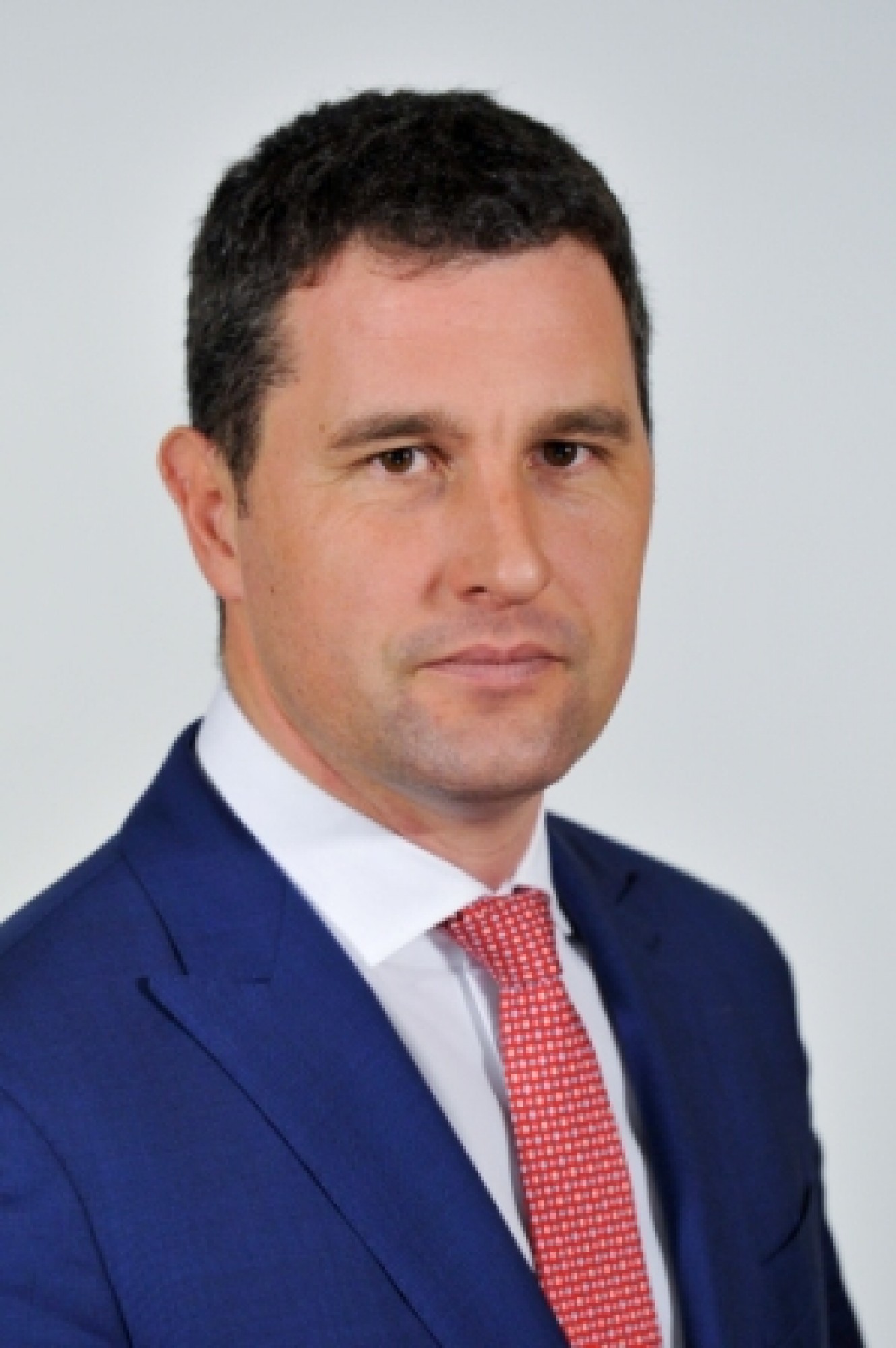








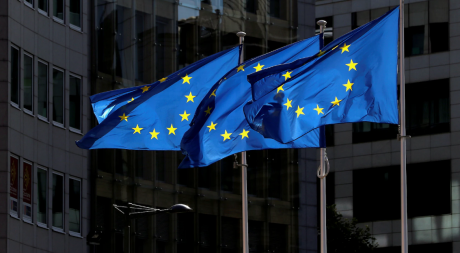
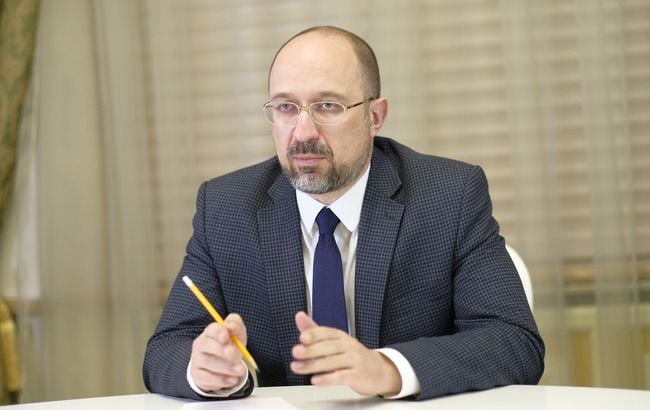


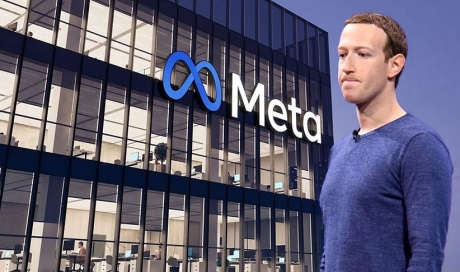

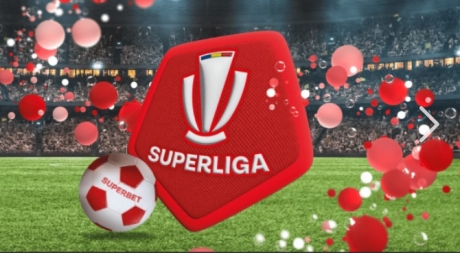





 English (US) ·
English (US) ·  Romanian (RO) ·
Romanian (RO) ·